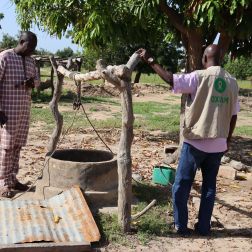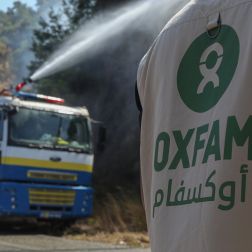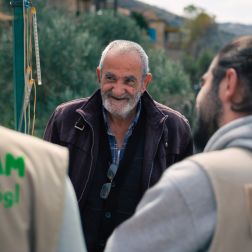- 4 mins read time
- Published: 24th April 2019
Oxfam community activists help prevent cholera after Cyclone Idai in Mozambique
In the aftermath of the Idai Cyclone In Mozambique, Oxfam and the Ministry of Health have trained more than 60 community ‘activistas’ in Mozambique to promote public health advice to help stop the spread of cholera.
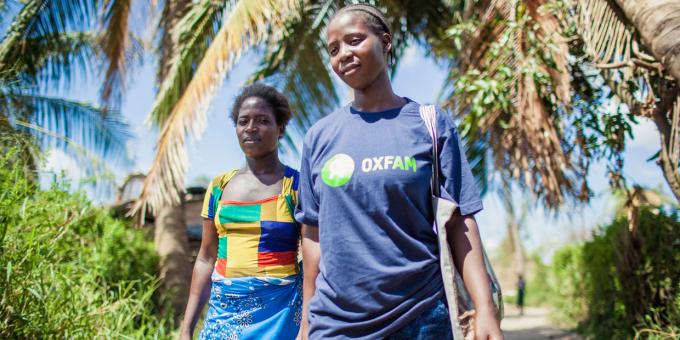
Cholera is easy to treat and prevent
“The tragedy is that cholera is actually easy to treat and simple to prevent.” Dorothy Sang, Oxfam’s Humanitarian Advocacy Manager in the devastated city of Beira, said. “But, if it really [takes] hold, it will flare [up and get] out of hand and the response will be that much more costly – both in terms of lives and the resources needed to stop it. We must get clean water and decent sanitation to people and [urgently promote the fact] that simple things like soap can keep cholera at bay.”
“We need to bring in far more supplies and fast, particularly to ensure clean water and safe waste management… the people [need to be prioritised and we need] to step up public health promotion in the heart of the affected communities.”
She went on to say that while the international response had been good, “the overall appeal remains just 17 percent funded – incredibly low for what the UN has described as ‘one of the worst weather-related disasters in Africa.”
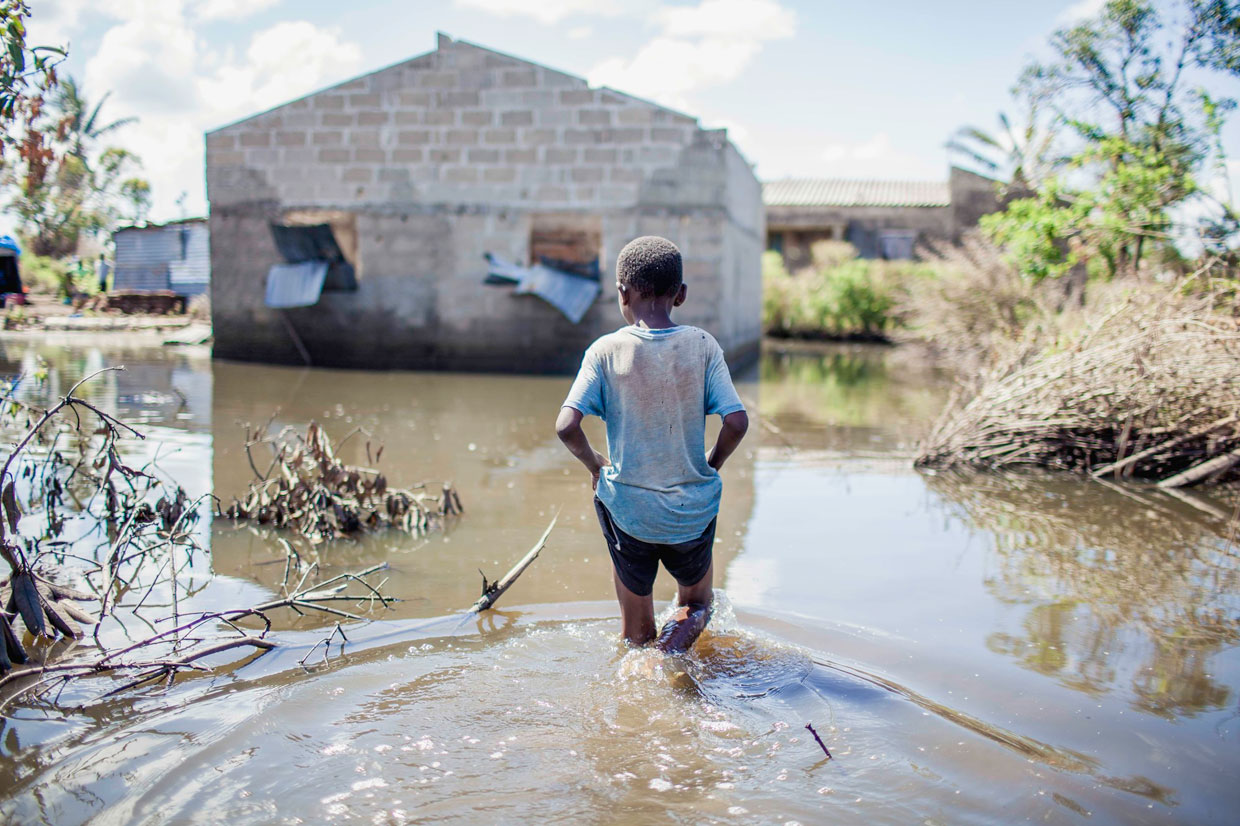
Jose Arnando wades through the highly contaminated waters inside Tica village. His house can only be reached through the water. Photo: Micas Mondlane/Oxfam
The Mozambique government is working fast to set up cholera treatment centers
Cholera treatment centers are being set up in the city of Beira, Mozambique, where the threat of a cholera epidemic is high.
Six people have died from the acute diarrheal disease and the number of cases is soaring, now over 3,000. The government began oral vaccinations for 900,000 people on April 3rd.
These vaccinations need the support of a massive community outreach campaign to help people learn how they can protect themselves against cholera.
With the help of Oxfam supporters like you, 64 ‘activistas’ so far have been trained to reach local communities with vital health information, including what to do if they suspect family or friends are infected. We will also distribute water purification liquids.
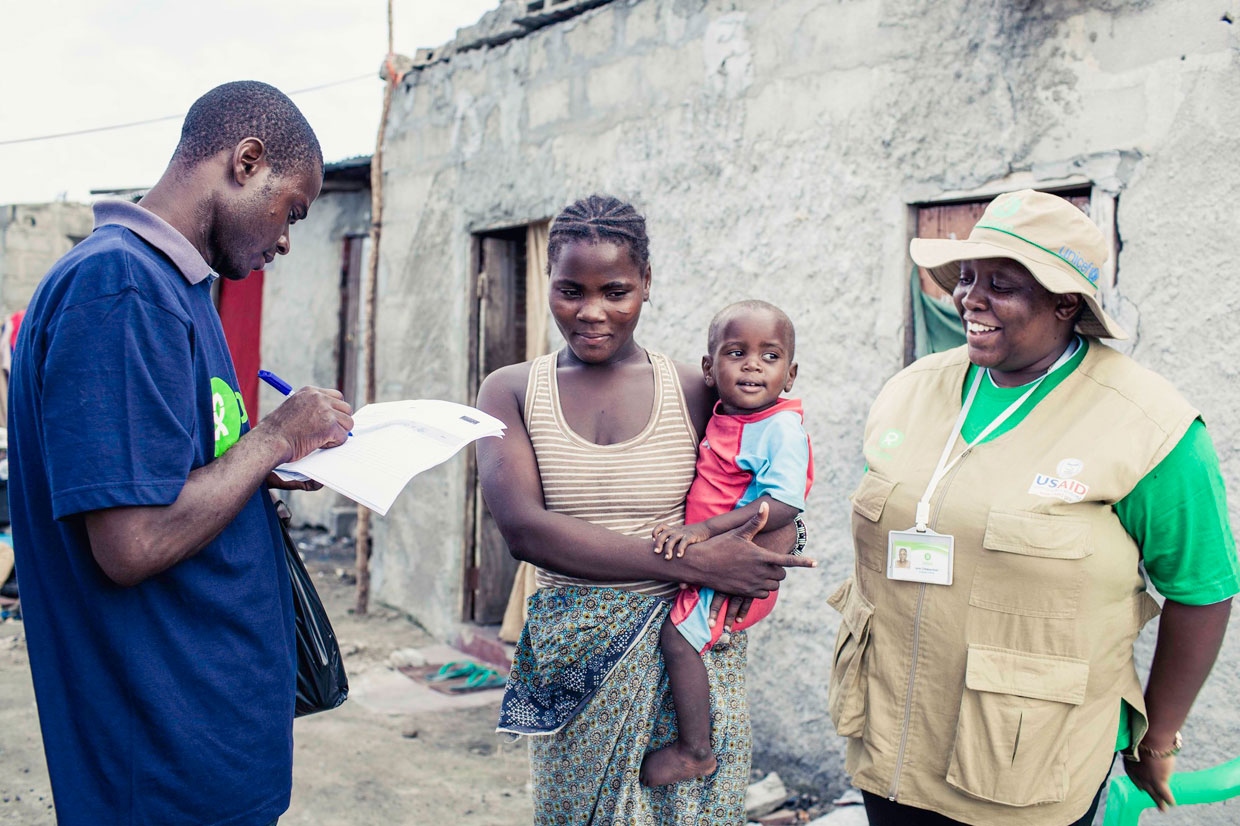
Janete Luciana, is getting information on hygiene and sanitation to prevent Cholera. Volunteer Felix and supervisor Lin are handing out bottles of chlorine to disinfect contaminated water in Mozambique. Photo: Micas Mondlane/Oxfam
More community ‘activistas’ are needed to help prevent cholera now
We now need you to help us scale up this programme, and fast. To get more than 1,000 community activistas working ASAP so local communities get the health information they need in time to prevent more deaths. And so we can carry on trucking clean water, building toilet facilities and distributing water containers, buckets and soap.
To prevent a further health emergency, we need the international community to step up funding to organisations now on the ground to rapidly scale up the response to contain and stop the spread of the cholera.
The crisis is still unfolding
The full scale of the Cyclone Idai crisis is still unfolding. Many thousands of people are still isolated in difficult to reach areas. The scale of destruction means that reaching people is costly and requires fast and flexible funding.
Oxfam’s Humanitarian Program Manager, Ulrich Wagner, led an assessment team by boat to Buzi, one of the hard to reach areas prioritized for the vaccination campaign.
“What I saw there was shocking, the perfect breeding ground for cholera. Just by looking at the side of some of the buildings you could see the flood waters had come up to way above my head,” he said.
“People were cleaning out what was left of their houses or trying to construct new shelters with any debris they could find. Toilets had been destroyed and were overflowing. We must assume all wells are contaminated but people are forced to still collect water from them. I was told that in some areas people were digging holes in the ground just to find a water source.”
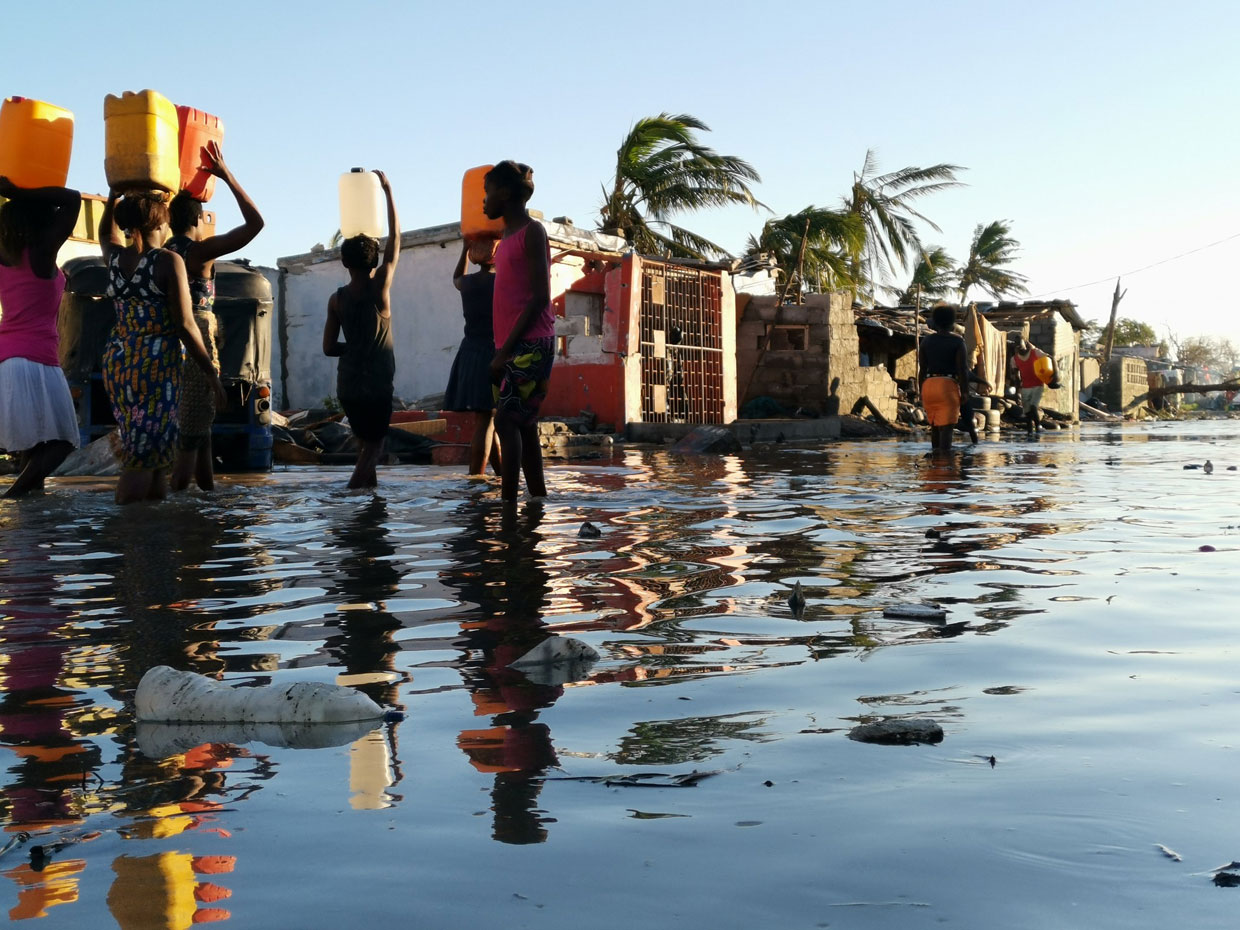
Survivors of Cyclone Idai in Beira, Mozambique, face water and electricity shortages and are at risk of waterborne diseases carried in contaminated flood water. Photo: Sergio Zimba/Oxfam
Oxfam is in Mozambique
In Mozambique, Oxfam is trucking clean drinking water to more than over 8,000 people living in displacement camps and distributing buckets and soap working as part of a collective of charities and with local partner AJOAGA.
A crucial next step in averting health hazards is to build toilets.
Last week (3 April), we shipped 38 tonnes of water and sanitation equipment to Beira: the shipment included over a thousand pieces of building material for constructing emergency toilets, over 20 large water containers to collect and store fresh water, 10,000 smaller water containers for people to use to carry and keep water clean and safe, three desludging pumps with generators, and over a hundred tap stands.
Thank you for your continued support.
Donate now to Oxfam's flood response
Top photo: Julia Pedro (right), a hygiene promotion volunteer for Oxfam. Julia’s family home collapsed and they are living with an aunt now. But still she wants to volunteer because, “these people do not know enough about dangerous diseases like cholera. I want to help them and save their children.” Julia is doing household visit and chlorine distribution in in Praia Nova, a poor area in Beira that has been hit hardest. Credit: Micas Mondlane/Oxfam
